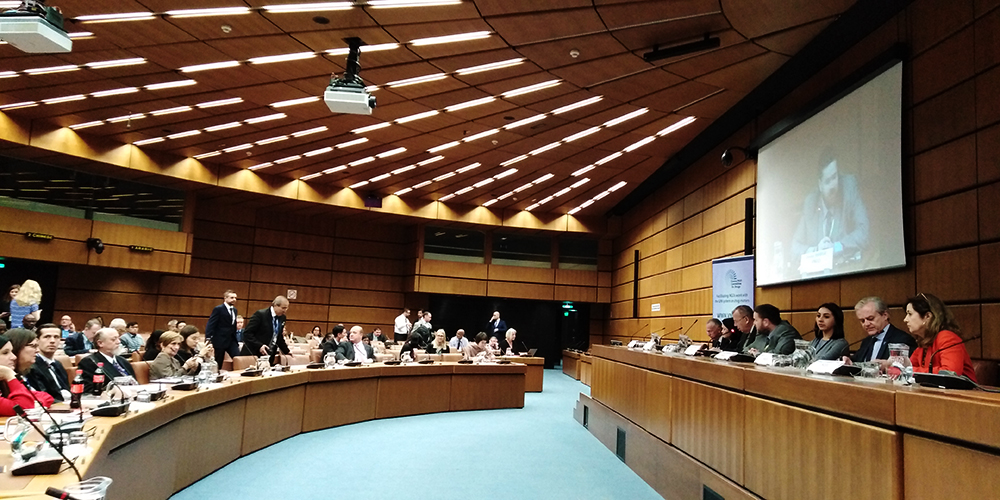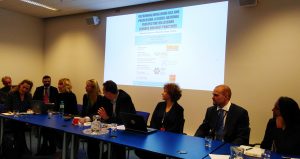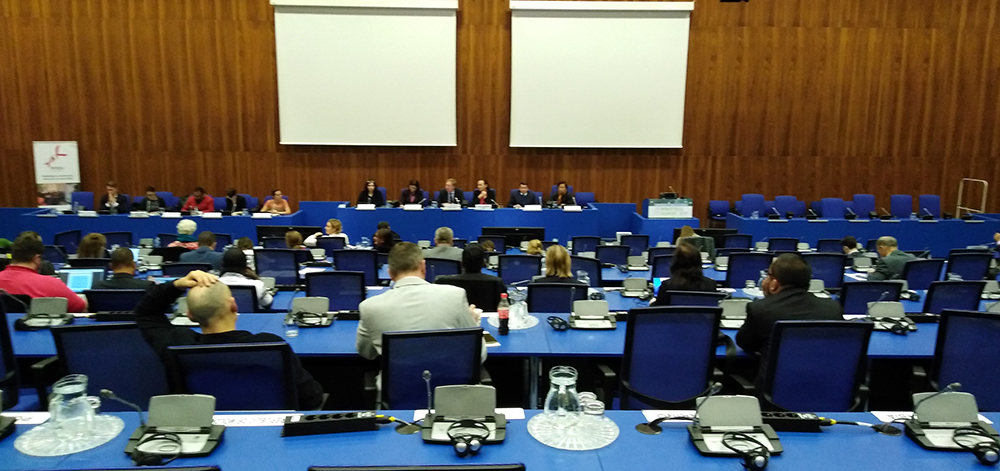Side events
The media, a key actor in the field of drugs
 Organized by Canada, and Association Proyecto Hombre, Canadian Centre on Substance use and Addiction, Dianova International, The Interest Organisation for Substance Misusers and Turkish Green Crescent Society.
Organized by Canada, and Association Proyecto Hombre, Canadian Centre on Substance use and Addiction, Dianova International, The Interest Organisation for Substance Misusers and Turkish Green Crescent Society.
Role of social networks to take action is to:
- Reach bigger audiences
- Promote initiatives
- Mobilize support
- Organize campaigns to end stigma
- Fund more research
- Authorities should monitor for dangerous content
- Encourage influencers to promote a healthy life style
An interesting source is Addictionary, produced by The Recovery Research Institute.
Kristina Stankova presented “The role of social networks and alternative media in the field of drugs”. The threats identified include misleading information and fake news, peer pressure, the influence of advertisement in social networks, famous people and influencers promoting unhealthy lifestyle as fun and cool, etc. Tips on how to use social networks and alternative media in a positive way include use of social networks as a tool to access information for research, use them as a tool to raise awareness and promote a healthy lifestyle, reach hidden populations, to end stigma, to spread accurate and understandable information, etc. Studies have found that as many as 75% of teens felt pressured to drink alcohol and use drugs after seeing their friends post these activities online.
Communities at the centre: Barriers and opportunities for community led interventions
Organized by International Drug Policy Consortium, International Network of People who use Drugs, Joint United Nations Programme in HIV/ AIDS, Office of the High Commissioner for Human Rights and UNODC HIV/AIDS Section.
Since 2018, only one new country started needle exchange programme, while no new country started OST – despite all evidence base that these are important services for people who use drugs.
Mick Matthews from INPUD: We are not the enemy, work with us.
11 million people in the world inject drugs. Every eight has HIV, every second Hep C. 84% of those who have HIV also have Hep C. UNAIDS is clearly ready to work with and for people who use drugs (and they introduced this denomination to UN documents).

Harm reduction and rehabilitation program for inmates in prisons with mental and behavioral disorders due to use of psychoactive substances
Organized by Spain and Ukraine and European Union
Spain and Ukraine presented a cooperation project implemented in the context of EU cooperation program. Both countries used it to implement measures planned by their drug strategies.
Spain performs a survey on health services in prisons every 5 years. 75% inmates used illegal substances in their life. “Incarceration is an opportunity to improve health of inmates”.
Drugs are present in prisons in Spain and make serious problems resulting in fights between internal gangs.
Relapse after treatments in Spain is at 31,5%, while at those who go through treatments in prisons it is around 16%.
In Ukraine, with the support from the Global Fund, condoms are shared free of charge in prisons. There was a programme to evaluate syringe exchange programme. Results of the programme are discussed now, but the measures shall wait for the reform on the prison system. Civil society organisations are involved in the programme and discussion.
Unfortunately, a few Ukrainian CSOs were very critical and presented completely different view.

Shared responsibility in addressing the cocaine threat along the supply chain
Organized by European Union, UNODC CRIMJUST, UNODC Regional Office for West and Central Africa and UNODC Research and Trend Analysis Branch
Chloé Carpentier, Chief of the UNODC Drug Research Section in her presentation mentioned that the “new kids on the block” in the cocaine trade chain in Latin America are the Balkan cartel which holds 34% of the transfer of cocaine from Latin America to Europe and almost all street distribution! Production of cocaine is on the historical maximum, there are more organised criminal groups and purity is very high. More regional and international cooperation is needed to fight the problem.

UNODC-WHO Community Management of Opioid Overdose – initial results from the S.O.S. study
Organized by Australia, Kyrgyzstan and the United States of America, and UNODC Prevention, Treatment and Rehabilitation Section, Vienna NGO Committee on Drugs and World Health Organization
Representatives of UNDC and WHO expressed their dissatisfaction that we have to fight for Naloxone, as this is a medication that has no controlled substance. Stigma associated with opioid use disorders is so potent that it extends to naloxone itself. Every day, week, year of inaction means that persons are dying due to opioid overdose when there are medicines that could save their lives. Naloxone is officially registered as a medicine across 51% of all countries, but most countries don’t provide data on the availability of Naloxone.
The research they prepared and showcased by this event also serves as an assessment of the WHO’s own Guidelines on Community Management of Overdose Overdose.
The WHO-UNODC S.O.S. programme (S.O.S. for Stop Overdose Safely) is a peer-distribution programme in which we attempt to provide take home naloxone to likely witnesses of overdoses. The goal at the launch of the SOS Initiative in March 2017 was to have 90% of those likely to witness an overdose are trained to implement Naloxone; 90% of those trained to provide naloxone are provided with a supply; and having 90% of provided with Naloxone are actually carrying it with them.
Meetings
Ms Leigh Toomey, member of the UN Working Group on Arbitrary Detention attends the 63rd session of the Commission on Narcotic Drugs. For the occasion, she was willing to meet with selected IDPC members and partners to discuss the Working Group’s activities, including its upcoming report on the use of arbitrary detention in drug policy.
Cases presented to Ms Toomey mainly came from countries which have harsh approach to drugs. DPNSEE Executive Director added a couple of issues from the region.
We participated in the Vienna NGO Committee Annual General Meeting. Half of the Board have been elected, all from recovery organisations which have obviously well prepared for the elections.


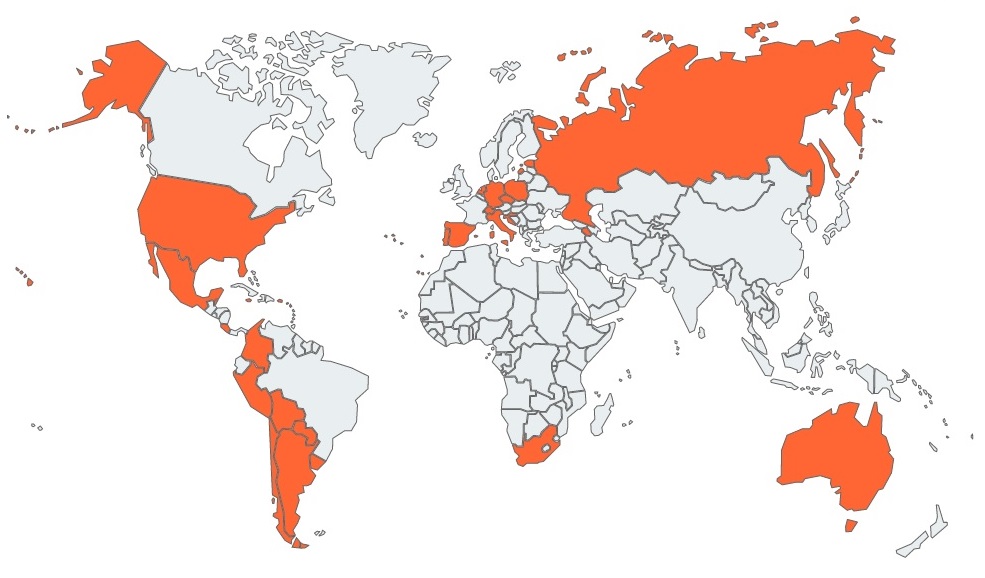
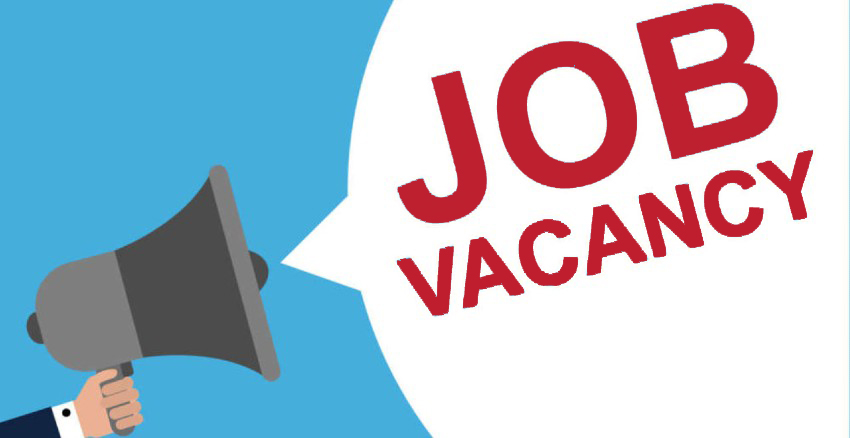

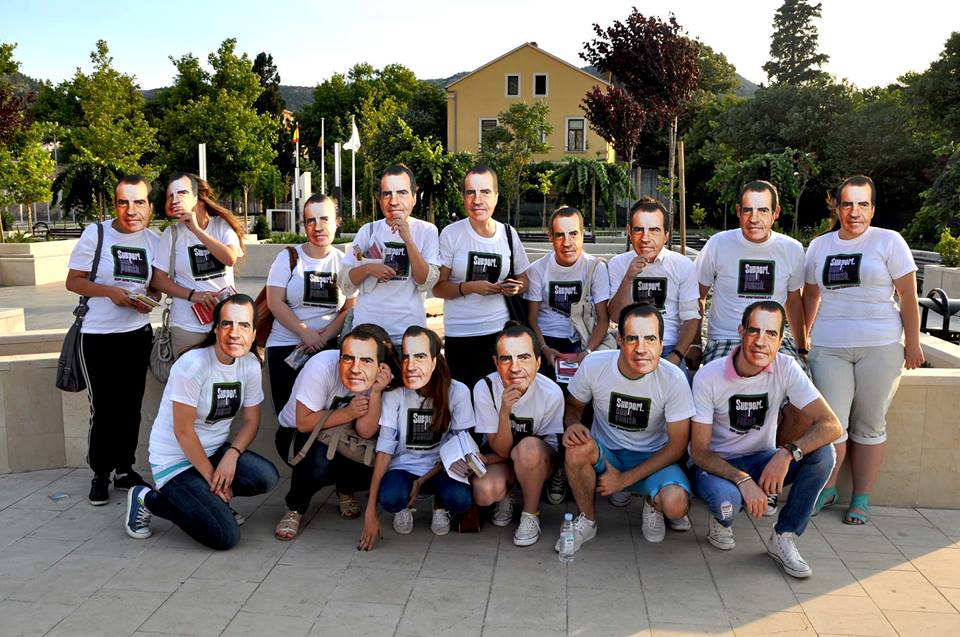
 The Drug Policy Network South East Europe coordinates activities of the campaign in South East Europe around the Global Day of Action 26 June – which is also the United Nations’ International Day against Drug Abuse and Illicit Trafficking.
The Drug Policy Network South East Europe coordinates activities of the campaign in South East Europe around the Global Day of Action 26 June – which is also the United Nations’ International Day against Drug Abuse and Illicit Trafficking.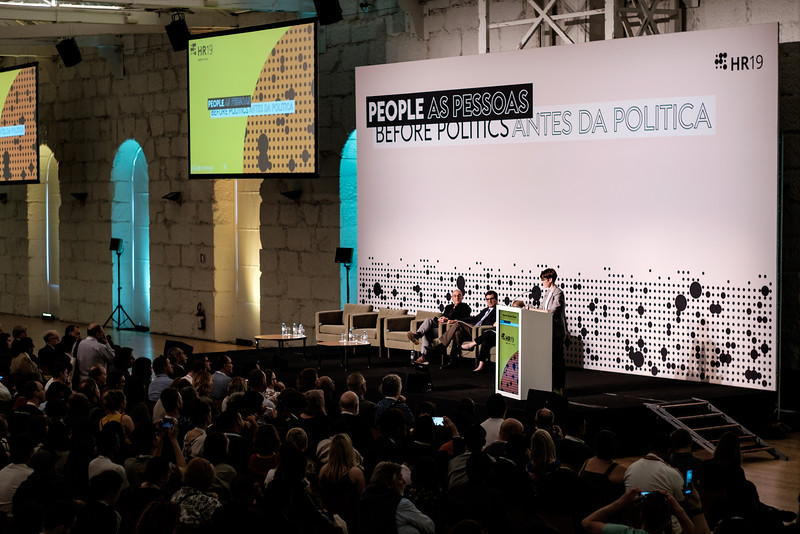
 Naomi Burke-Shyne, Executive Director of Harm Reduction International (HRI), said: ‘The evidence for harm reduction is indisputable. It is nothing short of disgraceful that governments continue to fail to support and invest in health services for some of the most marginalised people’.
Naomi Burke-Shyne, Executive Director of Harm Reduction International (HRI), said: ‘The evidence for harm reduction is indisputable. It is nothing short of disgraceful that governments continue to fail to support and invest in health services for some of the most marginalised people’. Ann Fordham, Executive Director of the International Drug Policy Consortium (IDPC), stated: ‘just over ten years left for countries to meet their global commitment to champion health, reduce inequalities, and provide access to justice for all, as enshrined in the UN’s Sustainable Development Goals, there has never been a more urgent need to strengthen political leadership at all levels. Faced with the current crisis, complacency can no longer be tolerated’.
Ann Fordham, Executive Director of the International Drug Policy Consortium (IDPC), stated: ‘just over ten years left for countries to meet their global commitment to champion health, reduce inequalities, and provide access to justice for all, as enshrined in the UN’s Sustainable Development Goals, there has never been a more urgent need to strengthen political leadership at all levels. Faced with the current crisis, complacency can no longer be tolerated’.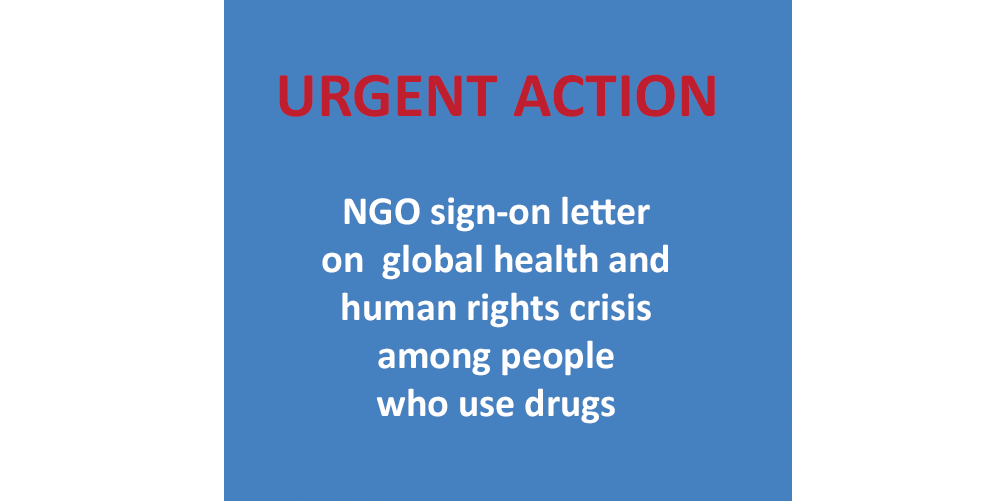
 IDPC are seeking as many NGO sign-ons as possible until Friday 26th April. The letter will then be shared with governments, UN officials and the media when the Conference starts on Sunday.
IDPC are seeking as many NGO sign-ons as possible until Friday 26th April. The letter will then be shared with governments, UN officials and the media when the Conference starts on Sunday.
 The meeting began with a ministerial segment on 14 and 15 March aimed at taking stock of the implementation of the commitments made to jointly address and counter the world drug problem.
The meeting began with a ministerial segment on 14 and 15 March aimed at taking stock of the implementation of the commitments made to jointly address and counter the world drug problem.
